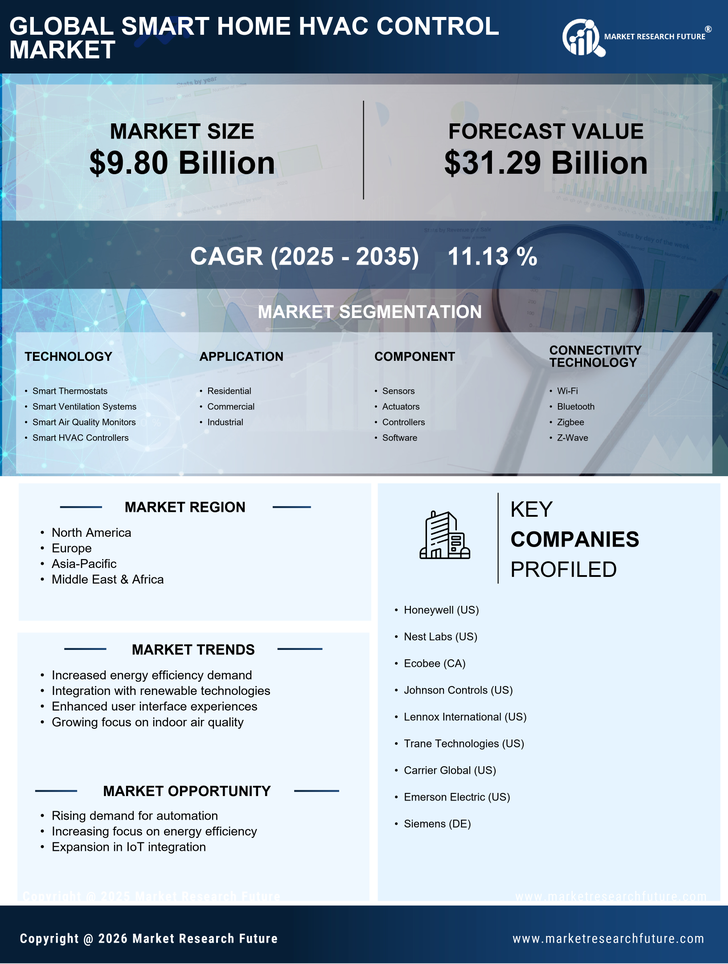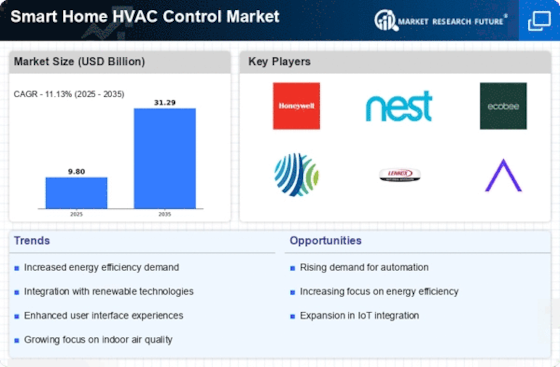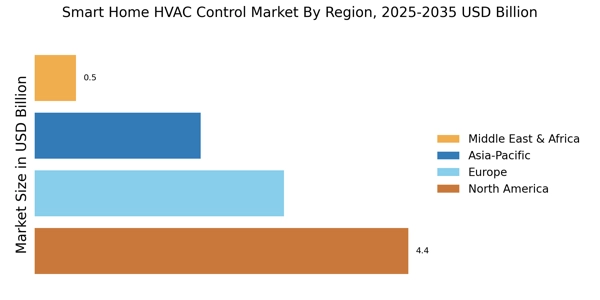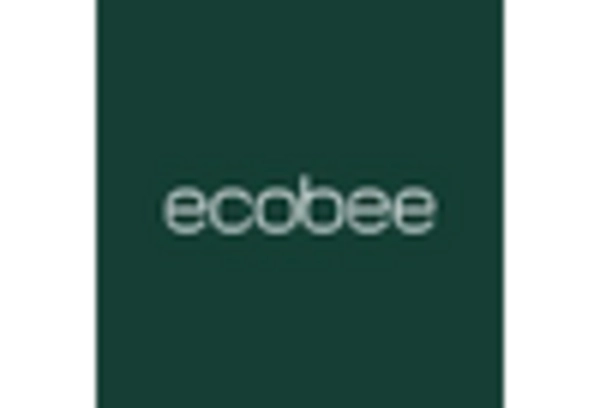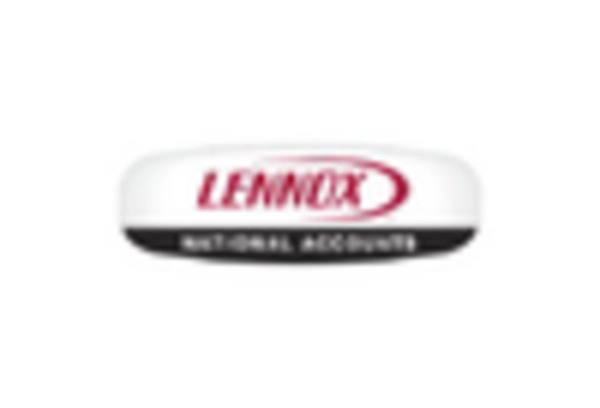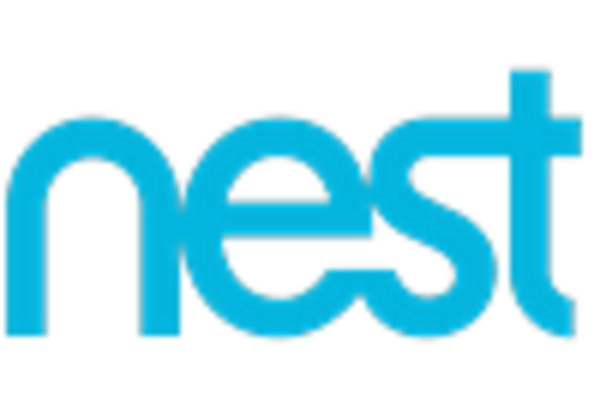Growing Focus on Home Automation
The growing focus on home automation is a pivotal driver for the Smart Home HVAC Control Market. As consumers increasingly seek integrated solutions that enhance convenience and control, the demand for smart HVAC systems is rising. Home automation systems allow users to manage their HVAC settings alongside other smart devices, creating a cohesive and user-friendly environment. Market Research Future suggests that the home automation sector is projected to grow significantly, with HVAC systems being a key component of this trend. The ability to control heating and cooling remotely, coupled with the integration of voice-activated technologies, is appealing to tech-savvy consumers. This trend towards comprehensive home automation is likely to propel the Smart Home HVAC Control Market, as more individuals invest in interconnected systems that simplify their daily lives.
Rising Demand for Energy Efficiency
The Smart Home HVAC Control Market is experiencing a notable surge in demand for energy-efficient solutions. As consumers become increasingly aware of their carbon footprints, the need for systems that optimize energy consumption is paramount. According to recent data, energy-efficient HVAC systems can reduce energy usage by up to 30%. This trend is further fueled by government incentives aimed at promoting energy conservation. Consequently, manufacturers are innovating to create smart HVAC systems that not only enhance comfort but also significantly lower energy bills. The integration of smart thermostats and automated controls allows users to monitor and adjust their systems remotely, thereby maximizing efficiency. This growing emphasis on energy efficiency is likely to drive the Smart Home HVAC Control Market forward, as consumers seek sustainable solutions that align with their environmental values.
Government Regulations and Incentives
Government regulations and incentives are significantly influencing the Smart Home HVAC Control Market. Many governments are implementing stringent energy efficiency standards for HVAC systems, compelling manufacturers to innovate and comply with these regulations. Additionally, various incentive programs are being introduced to encourage consumers to adopt energy-efficient technologies. For example, tax credits and rebates for installing smart HVAC systems are becoming more common, making these solutions more financially accessible. This regulatory landscape not only promotes the adoption of smart technologies but also fosters competition among manufacturers to develop compliant and innovative products. As a result, the Smart Home HVAC Control Market is likely to expand, driven by both regulatory pressures and consumer incentives that promote energy-efficient solutions.
Increased Consumer Awareness and Adoption
Consumer awareness regarding the benefits of smart HVAC systems is on the rise, significantly impacting the Smart Home HVAC Control Market. As more individuals recognize the advantages of automation, such as convenience, energy savings, and enhanced comfort, the adoption of smart HVAC solutions is expected to increase. Surveys indicate that a substantial percentage of homeowners are considering upgrading to smart systems, driven by the desire for greater control over their home environments. This shift in consumer behavior is further supported by the proliferation of smart home devices, which encourages integration and compatibility among various systems. As awareness continues to grow, it is likely that the Smart Home HVAC Control Market will witness a robust increase in demand, as consumers seek to enhance their living spaces with intelligent solutions.
Technological Advancements in HVAC Systems
Technological advancements are playing a crucial role in shaping the Smart Home HVAC Control Market. Innovations such as artificial intelligence, machine learning, and advanced sensors are being integrated into HVAC systems, enhancing their functionality and user experience. For instance, AI-driven systems can learn user preferences and adjust settings automatically, leading to improved comfort and efficiency. Furthermore, the introduction of smart home ecosystems allows HVAC systems to communicate with other devices, creating a seamless user experience. Market data indicates that the adoption of smart HVAC technologies is expected to grow at a compound annual growth rate of over 15% in the coming years. This rapid technological evolution is likely to attract consumers looking for cutting-edge solutions, thereby propelling the Smart Home HVAC Control Market to new heights.
